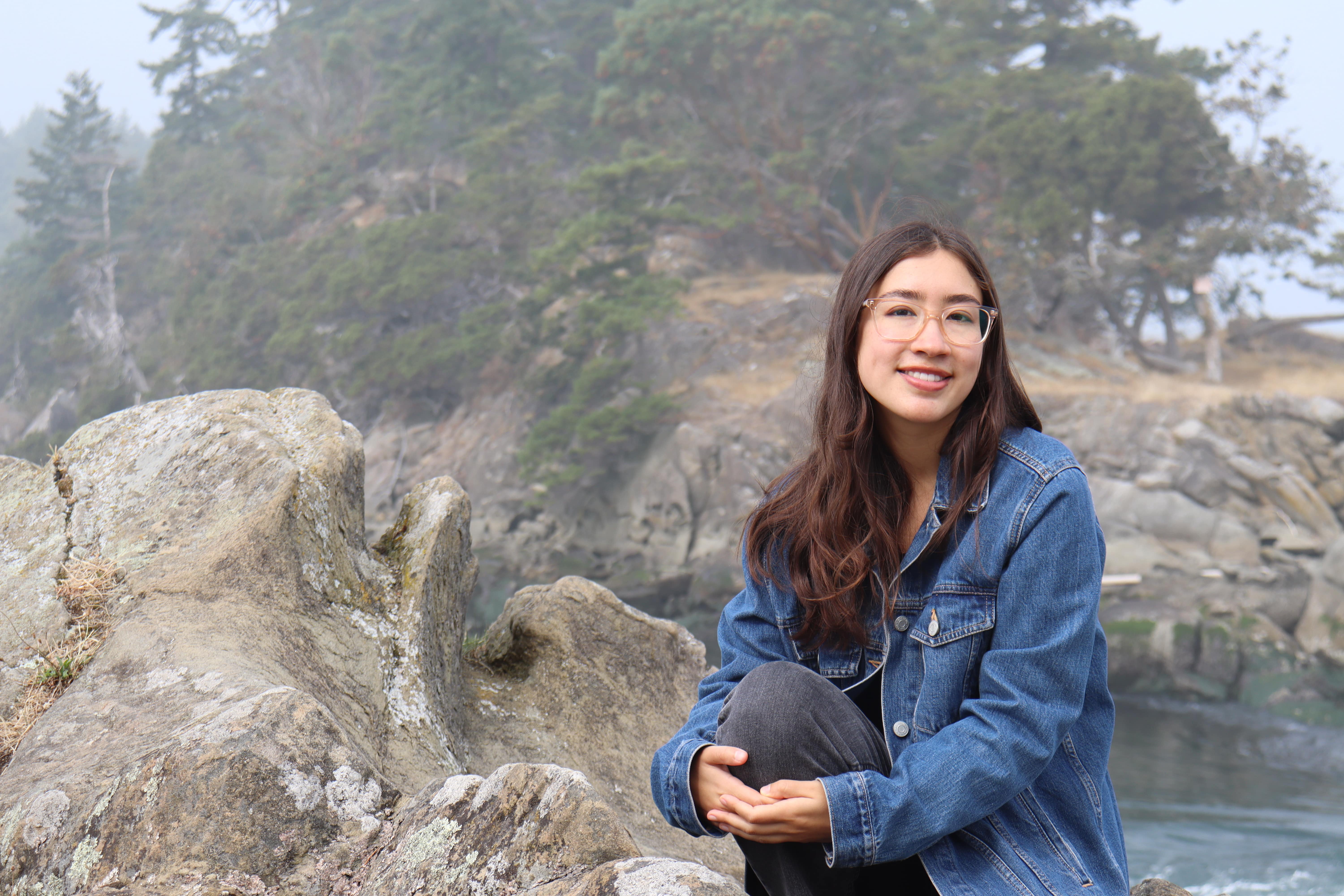Convocation ‘20: Sofia Osborne
Donna McKinnon - 16 November 2020

When she first enrolled at the University of Alberta, Sofia Osborne had every intention of becoming an ecologist. Driven by concerns about climate change and its related global and systemic complexities, Osborne believed that learning more about the environment was the obvious program choice, until she took a couple of first-year English courses. The lifelong reader discovered that a humanities-based Bachelor of Arts degree would thread all of her diverse interests together — providing both the robust, academic grounding and the creative training she would need to bring her unique voice to the world.
Now a freelance writer, editor and podcaster in Vancouver, Osborne graduates with a BA in English (with distinction), a minor in Philosophy, and in her words, an unofficial journalism degree stemming from her work with The Gateway. In 2019, she won the John H. McDonald Award for Excellence in Student Journalism, for In the grey—Alberta’s relationship with oil in a changing world, co-authored by Elizabeth Gierl.
While still a student, Osborne’s environmental journalism appeared in The Narwhal, The Tyee, Passage, and Terra Informa. Her most recent work, This Summer I Got to Know the Neighbours, Two Humpback Whales, appeared in The Tyee in September.
“All we can do is go with what feels right in the moment,” she says. “And give ourselves the space to change.”
What drew you to the area of your study, and why are you passionate about it?
Coming out of high school, English had always been my least favourite subject. I loved reading, but I didn’t understand what analyzing literature had to do with the issues I really cared about: climate change, racism, sexism, capitalism. Why spend time identifying metaphors when our existence on this planet is so threatened? Instead I planned to study ecology, but in my first year I had to take two English courses to satisfy my requirement, and I realized what English — and the Humanities — really is: it’s reading the world around you. As I progressed through my degree, I was able to take courses in Canadian literature, environmental ethics, feminist philosophy, film studies, and more, and I realized how powerful culture and ideology are in shaping our world.
At the same time, I was becoming more and more involved with The Gateway Student Journalism Society. Over the years, I was a volunteer, staff reporter, news editor, and finally managing editor. It was through The Gateway that I realized how much I love writing. What I value most about my time at The Gateway are the stories that I got to share — the research, the club profiles, the stories of international students. I owe a lot to The Gateway; it helped me find myself and taught me the value, and tremendous responsibility, of journalism.
What is the most remarkable thing you learned while you were a student?
When I started university, I thought of the truth as one single thing. I prided myself in my ability to memorize facts and regurgitate them on exams. But now I know the truth is multi-faceted; it is lies that are monolithic. In my fourth year, I took a year-long creative nonfiction course that taught me more than any other course I’ve taken. It was in that class that I realized that truth is something we write towards, that we uncover slowly. It doesn’t look like facts on a page. So many things, journalism especially, are plagued by so-called objectivity. I have learned to look at everything askance, and it can be exhausting, but I’m grateful for that skill.
How did you manage the challenges of navigating student life under COVID-19 restrictions and remote learning?
I’m very lucky to have finished up my courses just as COVID-19 restrictions came into place. When the pandemic began, I was in Glasgow, Scotland on a year-long exchange. I had spent seven amazing months getting to know the city and studying Scottish literature when everything changed and the UK went into lockdown. After a few months in quarantine in Scotland I had to come home early from my exchange and readjust to life back home. It’s been incredibly hard on my mental health, and everything feels at a stand-still, but I’m grateful for the time that I did get to spend on exchange.
Graduating into a pandemic is terrifying and I do feel untethered. For now, I am coping by pouring myself into projects that I care about and prioritizing spending virtual time with friends.
What piece of advice do you wish someone had given you when you started?
I wish someone had told me to not be afraid to change and grow. I had a very specific view of myself when I started university, and those preconceptions were shattered as I let myself expand. It was scary at first and I tried hard to fight the feeling that I was on the wrong path, but when I let myself follow my gut and try new things, that was when I really discovered new parts of myself. I try to remember that now as I venture into post-graduation territory — all we can do is go with what feels right in the moment, and give ourselves the space to change.
What is next for you?
That’s a good question that I wish I had a cut-and-dry answer to. At the moment, I’m working as a freelance writer and editor, and I have a science podcast called Beyond Blathers. I’m also applying to graduate school for fall 2021. I’m not exactly sure what’s next, but that’s exciting in its own way. I do know I want to keep writing!